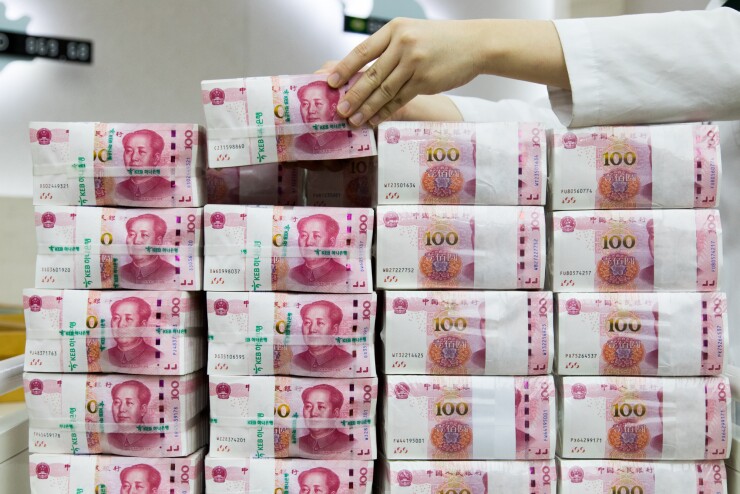One of China’s largest listed drugmakers said it overstated cash holdings by $4.4 billion, sending its shares and bonds tumbling and heightening concerns about the quality of accounting in a country that has become a fast-growing part of global investment portfolios.
Kangmei Pharmaceutical Co., a producer of traditional Chinese medicines, disclosed what it called an accounting “error” in an exchange filing on Tuesday, about four months after telling investors that it was being investigated by regulators. The stock, a constituent of MSCI Inc.’s global indexes, plunged by the 10 percent daily limit. Kangmei’s 2.4 billion yuan ($356 million) notes due 2022 fell as much as 14 yuan to 60 yuan.
The immense size of Kangmei’s restatement, described by one securities lawyer as unprecedented for China, puts a spotlight on disclosure practices in a country where companies are defaulting at a record pace and several instances of questionable accounting have emerged in recent months. The issue has become increasingly important for global investors and securities firms as they gain unprecedented access to China’s gargantuan stock and bond markets.

“Investors have to be more careful about Chinese firms’ reporting,” said Andrew Lam, a director at BDO, an international accounting firm. “They will have to do real homework, examining closely companies’ financial reporting for any potential irregularities.”
The China Securities Regulatory Commission, which in recent years has been pushing the nation’s stock exchanges to delist companies that provide inaccurate disclosures, didn’t immediately reply to a faxed request for comment. The Shanghai Composite Index rose 0.5 percent at 1:36 p.m. local time.
Kangmei, based in China’s southern Guangdong province, said it faces forced delisting if the CSRC classifies its behavior as a major legal violation, according to a company notice on risks related to its ongoing CSRC investigation. The drugmaker’s upcoming bond maturities include a 750 million yuan note due Sept. 3. Kangmei plans to sell as much as 20 billion yuan of bonds to replenish working capital and repay debt, the firm said in a filing on Tuesday.
Other companies that have faced similar scrutiny from regulators include Kangde Xin Composite Material Group Co., which defaulted on a bond in January after reporting cash levels just four months earlier that were enough to pay the debt 15 times over. The CSRC began investigating Kangde Xin in October.
“We have seen a number of Chinese companies with high cash balances still seek funding from investors, and later on the cash just disappears,” said Raymond Chia, head of credit research for Asia excluding Japan at Schroder Investment Management Ltd. “We should really question borrowers.”
Investors will watch the CSRC for more details on what went wrong at Kangmei, according to Guo Feng, head of the wealth management department at Northeast Securities Co. Whatever the result, the company may struggle to win back investor confidence, said Shen Chen, a partner at Shanghai Maoliang Investment Management.
“This scandal could narrow their refinancing channels as investors flee,” Shen said.
— With assistance from Lianting Tu, Tongjian Dong, Amy Li, Yuling Yang, Lucille Liu, Dong Lyu and April Ma





